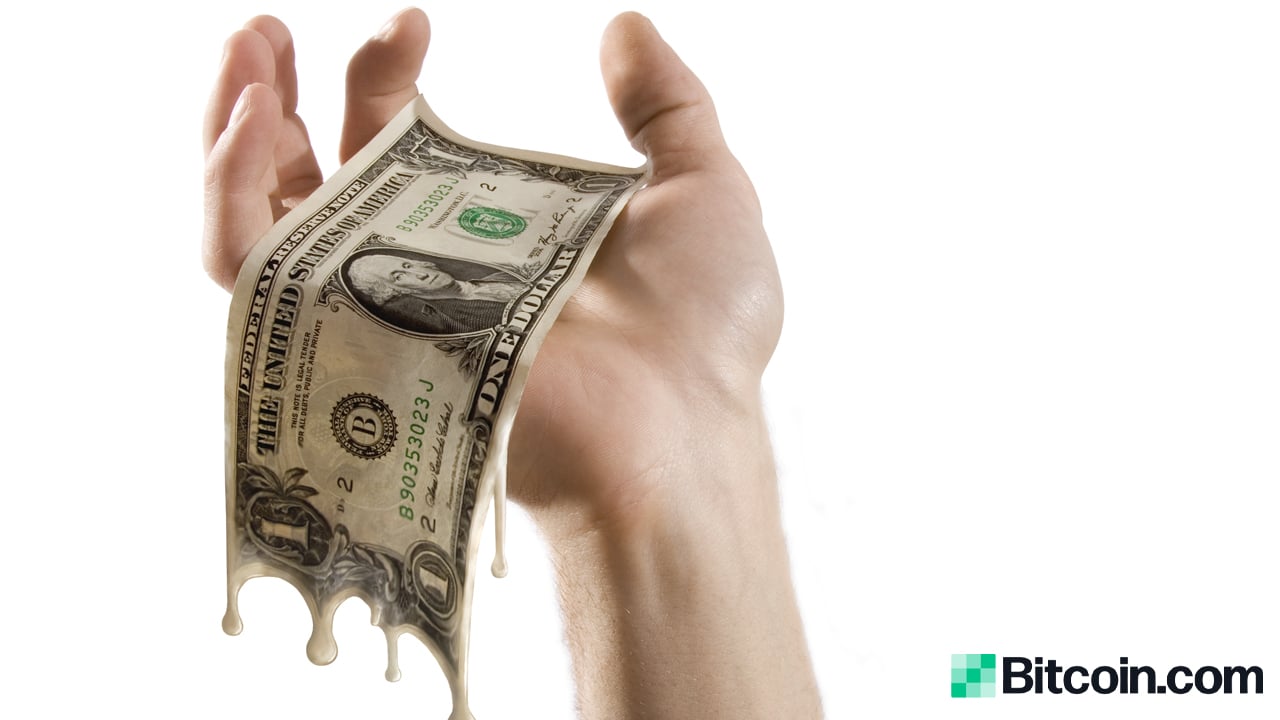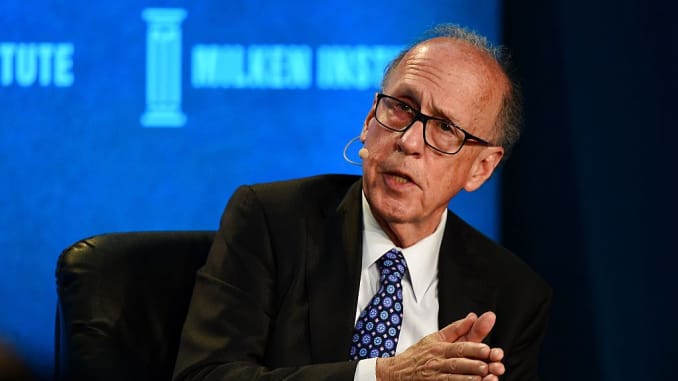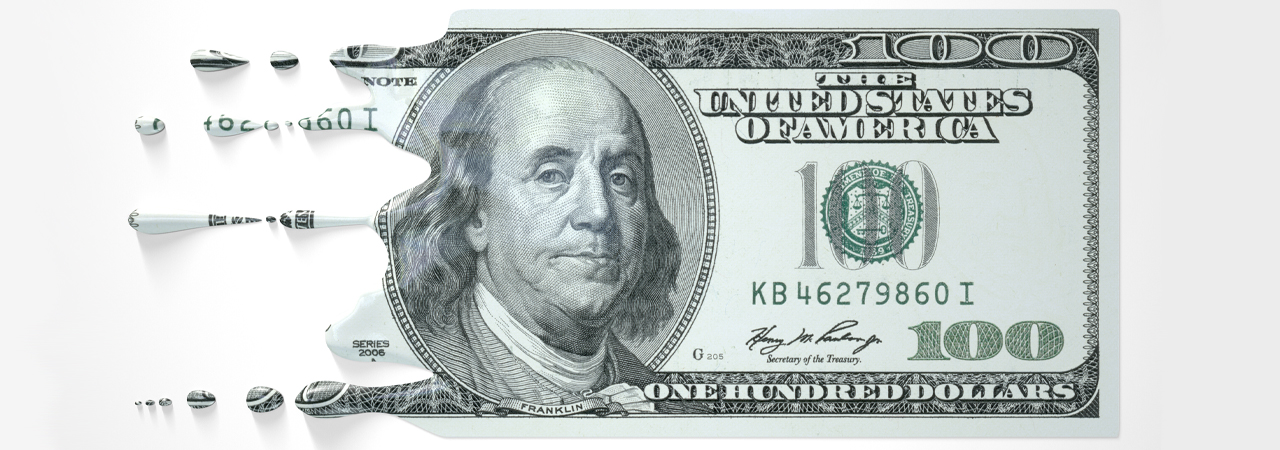[ad_1]

Well before the coronavirus pandemic, global economists expected a grim-looking American economy and during the last ten months of the Covid-19 outbreak, the U.S. financial system looks even worse. Economists and analysts say the biggest concern is the U.S. dollar faltering into the unknown, as a great number of distinguished individuals believe the USD will see a significant value decline in 2021. Moreover, renowned economist Stephen Roach thinks there’s more than a 50% chance the U.S. dollar could collapse by the end of next year.
The U.S. dollar currency index (DXY) has continued to spiral lower, as investors have been looking for safer assets to hedge against a turbulent economy. During the last week, a myriad of economists and financial analysts have predicted that next year, the U.S. dollar is going to weaken even more so than it did in 2020.
This past year, the U.S. currency’s trade-weighted index or DXY has dropped to lows not seen since May 2018. Meanwhile, as the American dollar plunged this summer to new lows, Goldman Sachs warned that the USD is at risk of losing its dominant power as the world reserve currency.
2021 could be the year that Americans begin to find how much all this free government actually costs. The bill for the bailouts and stimulus will come in the form of a collapse in the value of savings and incomes, as the cost of living begins a long overdue explosive move higher.
— Peter Schiff (@PeterSchiff) December 3, 2020
During the last month of 2020, a great number of analysts still indicate that they are bearish about the dollar’s performance in 2021. On December 2, the economist and gold bug, Peter Schiff, explained that he expects more dollar decline next year.
“The U.S. dollar is now trading at its lowest level against the Swiss franc since Jan. of 2015,” Schiff tweeted. “This is a harbinger of things to come. The franc is leading the way, but other currencies will soon follow. 2021 may be the worst year ever for the U.S. dollar, at least until 2022,” the economist added.

Normally, it’s just bitcoiners and gold bugs predicting that the dollar is on its last leg, but many other well known people in the financial world are skeptical about the USD as well. Stephen Roach, the former chairman of Morgan Stanley Asia, recently told CNBC that the “seemingly crazed idea” of a U.S. dollar collapse could come to fruition.
Roach highlighted during his interview that his prediction was based on historical evidence and previous economic cycles. The economist wholeheartedly believes there’s a 50% chance the dollar could collapse by the end of next year.
“The current-account deficit in the United States, which is the broadest measure of our international imbalance with the rest of the world, suffered a record deterioration in the second quarter,” Roach emphasized. “The so-called net national savings rate, which is the sum of savings of individuals, businesses, and the government sector, also recorded a record decline in the second quarter, going back into negative territory for the first time since the global financial crisis.”

Further, Reuters hosted its annual Investment Outlook summit this week, and many of the financial executives at the event didn’t have much faith in the American currency’s future either. “The markets are right, I think the dollar will cheapen from here,” Rick Rieder, Blackrock’s chief investment officer for fixed income told the summit participants. This follows Blackrock CEO Larry Fink’s recent statements when he said the crypto asset bitcoin “can evolve into a global market.”
A number of other executives attending the Reuters Investment Outlook summit said similar statements about the American currency. “A re-emergence of a growth gap between the rest of the world and the U.S. should push the dollar down,” David Kelly, chief global strategist at JPMorgan Asset Management said during the event.

In fact, the summit was filled with individuals and organizations who expect the USD to weaken by at least next year. The financial institution BNP Paribas explained to the press it expects the dollar will soften more and Citi is forecasting a 20% USD decline in 2021 as well. Further, investment bankers think that it will be hard for other central banks to “out-dove” the U.S. Federal Reserve.
For this reason, Peter Fitzgerald, chief investment officer for multi-asset and macro at Aviva Investors, says he is long on foreign currencies and “emerging market currencies versus the dollar.”
“It’s going to be very difficult for any other central bank to effectively out-dove the Fed,” Fitzgerald noted at the summit. Meanwhile, a few other analysts like M&G Investments executive, Jim Leaviss, believe that foreign central banking institutions will probably weaken their fiat currencies first.
During his recent discussion, the economist Stephen Roach further explained that the U.S. may see some more economic aftershock from the new Covid-19 infections and the flu season. “We’ve gotten data that’s confirmed both the saving and current-account dynamic in a much more dramatic fashion than even I was looking for,” Roach stressed.
The former chief economist at Morgan Stanley predicted the U.S. dollar’s latest crash in value this past summer, and he’s firmly pressed that the currency will decline another 35%.
“As we head into flu season with the new infection rates moving back up again, with mortality unacceptably high, the risk of an aftershock is not something you can dismiss,” Roach concluded. “That’s a tough combination. And I think the record of history suggests that this is not a time, unlike what the frothy markets are doing, to bet that this is different.”
What do you think about all the economists and analysts that are bearish about the U.S. dollar’s future? Do you think the USD faces collapse? Let us know what you think about this subject in the comments section below.
Image Credits: Shutterstock, Pixabay, Wiki Commons, Tradingview, Twitter,
Disclaimer: This article is for informational purposes only. It is not a direct offer or solicitation of an offer to buy or sell, or a recommendation or endorsement of any products, services, or companies. Bitcoin.com does not provide investment, tax, legal, or accounting advice. Neither the company nor the author is responsible, directly or indirectly, for any damage or loss caused or alleged to be caused by or in connection with the use of or reliance on any content, goods or services mentioned in this article.
[ad_2]
Source link



